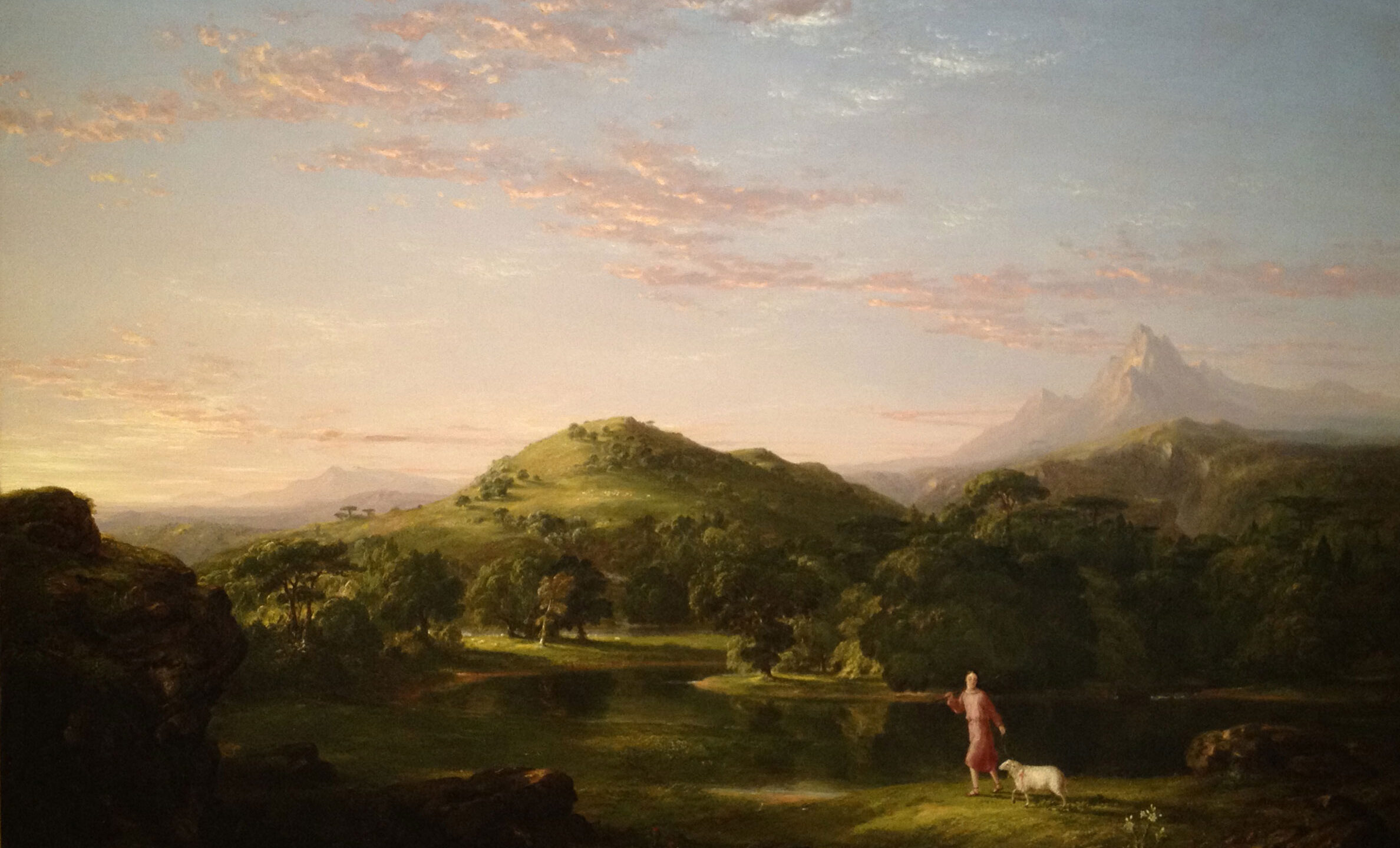The third exhortation of the prophet Micah in his famous quote is to “walk humbly with your God” (6:8). The righteous person is asked by God to “act justly and love tenderly” but to do so in a dynamic way as we move forward along the path of life, accompanied by our God. This dynamic of movement is important, for it speaks of the bonds of communion with God growing stronger as we journey together. Our friendship with the Lord is not static but involves change, maturity, and advancement toward a goal or destiny.
In the Scriptures, this dynamic of walking with God appears very early in the Garden of Eden when we are told that Adam and Eve hid from their creator when they heard the sound of God “walking in the garden” (Gen. 3:8). As the people of Israel walked in the desert towards the promised land, it was a time when they were tested, formed, and led along the path that God marked out for them. And as they traveled, the Lord went ahead of them as “a pillar of cloud by day and of fire by night” (Exod. 13: 21-22). As a pilgrim people, they understood the Lord as their shepherd who “guides me along the right path” (Ps. 23). On this journey, God gave Israel his law—not to restrict their freedom and joy but to secure it. These laws were given not in the spirit of slavish obedience but rather as a route to grow in love or “the way that the Lord has marked for you” (Deut. 5:33). Therefore, the God who walks with his people is also the God who leads the way.
In the New Testament, Jesus is the Savior who “guides our feet in the way of peace” (Luke 1:79) as he invites those he chooses to “follow him.” He asks his disciples to “pick up their cross and come after me” (Matt. 16:24; Luke 9:23) and promises that those who follow him will not “walk in the dark but will have the light of life” (Jn. 8:12). In the Gospels, the promise of God to be with his people is always read with an important caveat—namely, that the Lord goes with us but also ahead of us on our journey. In one telling episode, Peter tries to persuade Jesus away from the path of suffering. Jesus’ rebuke of Peter to “get behind me Satan” (Matt. 16:23) can be read as telling him: “Get behind me, not in front of me. I must mark out the right path for you to follow. I must go first. Only then can you come after.” He is “the way” but also the One who leads the way (John 14:6).
The God who walks with his people is also the God who leads the way.
Perhaps the best-known example of God walking with us in the person of Christ is found in the story of the disciples on the road to Emmaus. There, the risen Christ walks with his friends, even though they are walking the wrong way—away from Jerusalem. The Lord does this for a reason: so that through his closeness and the power of God’s word, the disciples might convert, turn around, and walk again on the right path. Here again, the metaphor of walking is not abstract but describes the process of re-alignment to God’s nature and purposes—his will, his mercy, truth, ways, and saving mission.
This is why the early disciples of Christ were known as “followers of the way” (Acts 9:2; 19:9, 23; 22:4; 24:14, 22) before they were known as “Christians.” To be a Christian then, as now, is to follow Christ along the path he takes us and to live a way of life marked by intimate and loving union with him. And through that union, we partake in the divine nature as the Spirit conforms our nature to his.
This ancient model of walking with Christ and behind Christ has been revived for the Church today by Pope Francis’ advocacy of the synodal pathway. He wants Christians to live in closer proximity in the family of the Church, to become more fraternal, to move together, to grow in communion with God and one another, and to participate more fully in the mission of the Church. We are a Church community that is on the move, that goes forth, a pilgrim people on the march that goes out to meet the world with courage and confidence with a gift to offer. A healthy Church is like a river of water that moves and flows, for in the words of St. Catherine of Siena, “Love does not stay idle.”
This model of the Lord walking with us and yet before us is important. We are always tempted to make God in the image of who we think God should be instead of allowing God to be who he has revealed himself to be. We are tempted to conform the truth to ourselves instead of conforming ourselves to the truth. Therefore, keeping before us that Jesus is “the way” saves us from presumption and pride. That is why people like St. John Henry Newman prayed “Lead kindly light,” and why Fr. Walter Ciszek summed up his story with the title of his autobiography He Leadeth Me.

Finally, we are to walk humbly with our God. In the aftermath of Church scandals, it is often said that what we need is a more humble Church. If this means a Church that is contrite of her sins, perhaps less arrogant, complacent, or materialistic, then yes, we need a humbler Church. But a humble Church that does not evangelize or have the courage to speak out and engage with the cultural issues of our time is not a humble Church but a dying Church. A humble Church has her feet on the ground but with one foot forward on the march, conscious of her mission from the Lord to go make disciples and proclaim the Gospel to all creation. A humble Church does not boast of herself but shares of the gift she has received with a world that has forgotten God.
Based on the Gospel, it is our conviction that the Church offers a broader, richer, and more coherent vision of life than the many alternative narratives on offer today that are confusing, spiritually poor and morally bankrupt. Regarding specific issues of social justice, life issues, marriage, family, sexuality, care for the environment and others, this is not a time for the Church to be timid or retreat into private and hidden spheres. It is not a time for the Church to lose its identity by dissolving itself in the surrounding culture. The Church is not called to imitate the culture but convert it. She needs to go forth and to “put out into the deep” by engaging courageously with modern culture in the market square. As a prophetic community we are called, not to fit in, but to stand out.
So, as we walk humbly with our God, may we have the courage to go beyond ourselves, to move out from shallow waters and to set sail on the open sea of mission. May the Good Shepherd lead us together as a Church along the way that leads to the Father’s house, the destiny of our common journey and our final rest.
